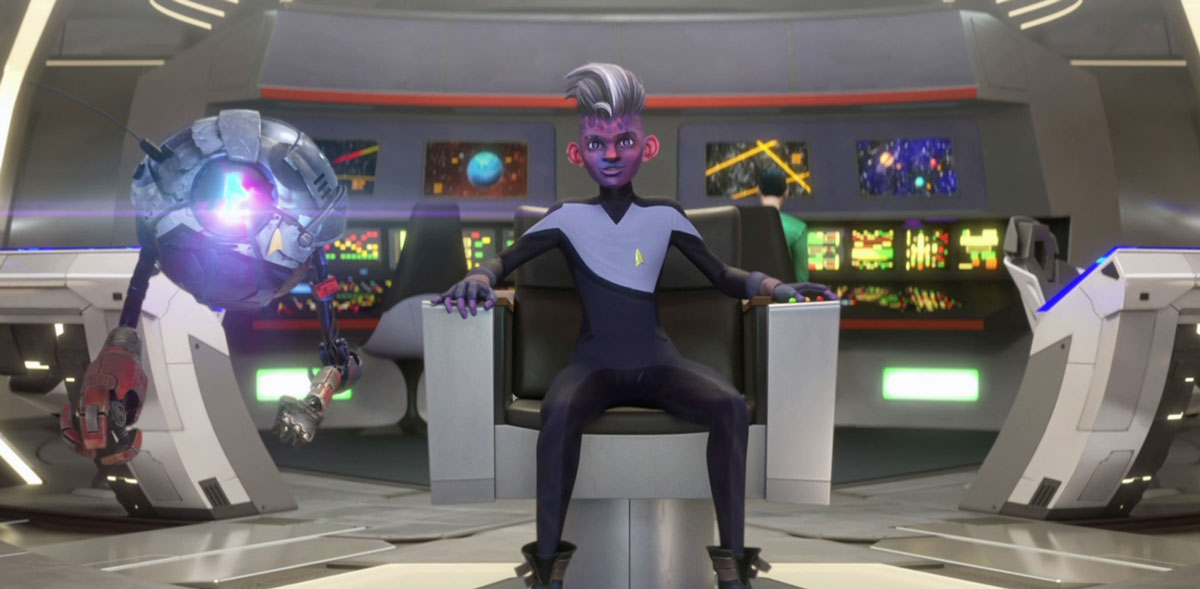Because it's tacky. In the case of "explaining" why the version of Christine from TOS is a personality-less cardboard cutout whose only trait is passively pining over a man who has rejected her and the version in SNW has an actual personality, actual goals, and actual agency? It is incredibly distasteful to treat the decision to depict a woman as an actual person as some sort of "problem" that needs a Watsonian explanation, as though the horrible misogynistic writing of TOS was something that ought to be preserved.
All true enough, but I don't see that as the issue here. Chapel had little enough characterization in TOS anyway that there isn't necessarily an inconsistency in personality, especially since there's a time difference of about 6 years. TOS's Chapel could've been just as effervescent in 2260, then gotten sadder and more subdued after falling in love with Roger Korby and then losing him.
But, since it's now an explicit fact that this isn't quite the same timeline as TOS, that could explain more basic continuity differences, like Chapel already knowing T'Pring when she didn't seem to in "Amok Time." And, far more importantly, it opens the door for the writers to develop Chapel's character and experiences (and everyone else's) in directions that aren't entirely bound by what TOS established. It's good for writers to have that freedom to tweak things as the story requires, with Chapel or any other character.
Now, an interesting question might be which timeline Spock Prime came from in ST09. That could clean up some of the different details regarding the supernova, although as Nimoy was playing his Spock, I'd be cautious in pulling that wire.
It shouldn't matter. Again, the idea here is that it's the shows' past that's different, not their present. This was done to reconcile Trek's version of the 20th-21st centuries with our own, but it was stated that history (or temporal cold warriors) had a tendency to correct back toward the same future, so the 23rd and 24th centuries are still mostly the same, as are the people in them. They can functionally be considered the same people with some altered memories, sort of like the DS9 cast after the Prophets restored Akorem Laan to history in "Accession."
Also, what different details regarding the supernova? The Picard version is essentially consistent with what was actually onscreen in ST '09. It only conflicts with the non-canonical elaboration on it from the comics and STO. And the PIC version makes considerably more sense than the comics' "Hobus" version, e.g. by not requiring the supernova to travel faster than light or to be predicted only a short time before it happened. (In reality, you can see the signs of a star's impending supernova millions of years in advance, but 5-6 years is certainly more plausible than a matter of weeks.)



